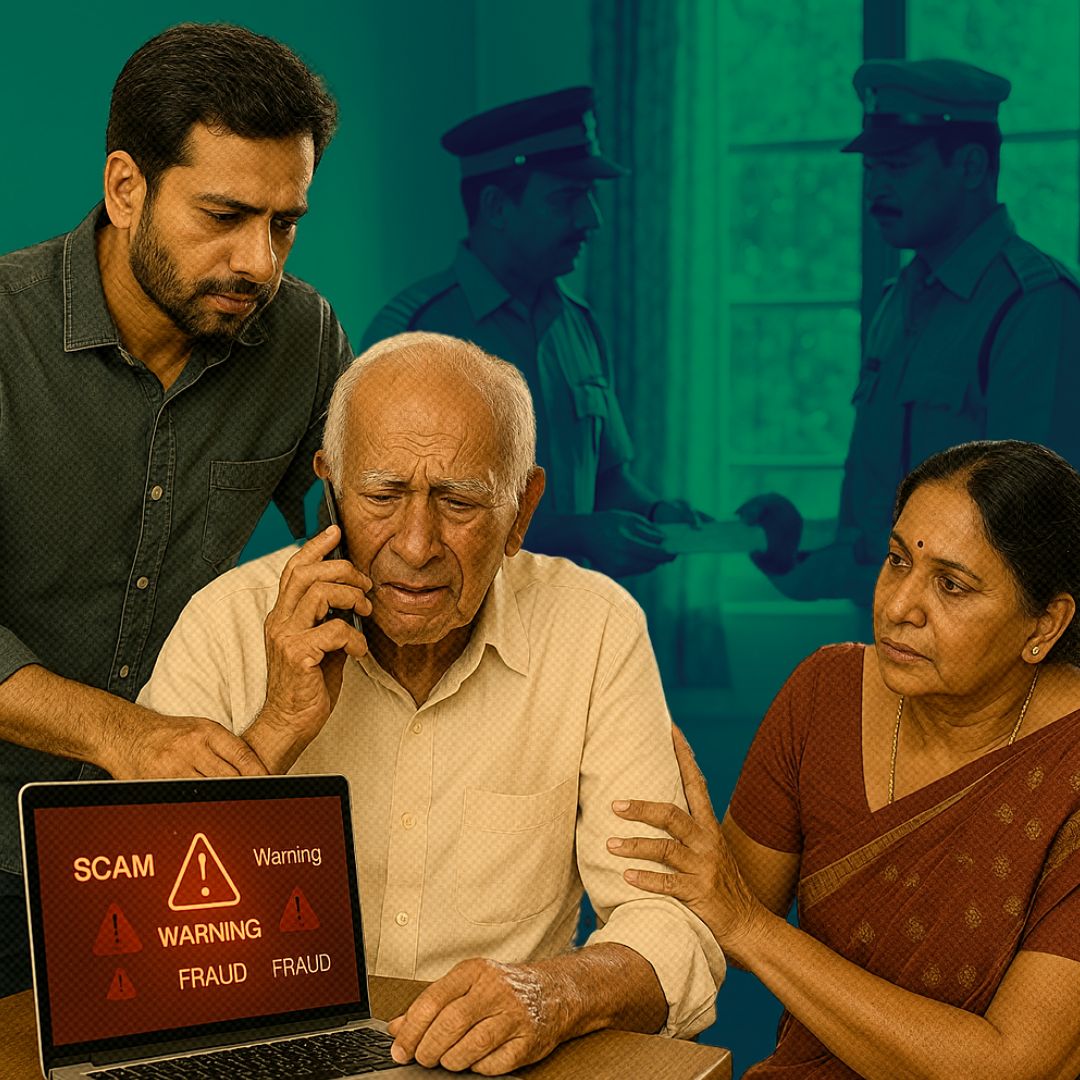Delhi Police’s Cyber Unit has arrested two men, Amit from Ghaziabad and Hari from Assam, accused of defrauding a 92-year-old retired surgeon of Rs 2.2 crore in a sophisticated “digital arrest” scam.
The accused, linked to an international cyber fraud syndicate, impersonated government officials and coerced the elderly victim into transferring his entire life savings.
Police have successfully recovered the full amount and seized crucial digital evidence. The investigation is ongoing, with authorities actively pursuing the syndicate’s kingpin to dismantle the wider criminal network.
Elderly Victim Tricked by Impersonators in High-Stakes Scam
The victim, a nonagenarian residing in Delhi, began receiving persistent phone calls in early March from individuals claiming to be officials from the Telecom Regulatory Authority of India (TRAI) and later from the Maharashtra Police.
These fraudsters employed psychological manipulation, threatening the victim with multiple FIRs and presenting a fake arrest warrant during a video call to instil fear. “The accused kept the victim on the phone for hours, ensuring he could not seek help from family or friends, and coerced him into transferring Rs 2.2 crore,” said a spokesperson from the Delhi Police Cyber Cell.
The victim, believing he was under imminent threat of arrest, liquidated his fixed deposits and transferred the money into three different bank accounts controlled by the scammers. Following the complaint, the police acted swiftly to track and recover the funds, which have now been returned to the victim.
International Syndicate Under Police Radar
Further investigation revealed that Amit and Hari were operatives of a larger international cyber fraud syndicate that uses sophisticated digital impersonation and money laundering techniques. The accused had funnelled the scammed money to the syndicate’s kingpin through a complex network of mule accounts.
Delhi Police’s Intelligence Fusion and Strategic Operations (IFSO) unit seized three mobile phones and multiple SIM cards during the arrests, which have provided vital clues about the syndicate’s modus operandi. Authorities have frozen the implicated bank accounts and launched a manhunt for the mastermind behind the scam.
Officials warn that such syndicates are increasingly targeting vulnerable elderly citizens, exploiting their limited digital literacy and trust.
Expert Advice: How to Stay Safe from Digital Arrest Scams
Cybersecurity experts stress the importance of awareness and vigilance, especially among senior citizens. “No government agency will ever demand money or threaten arrest over the phone or through video calls,” said Anuj Aggarwal, Chairman of the Centre for Cyber Victim Counselling. Experts recommend the following precautions:
- Never share personal or banking details over the phone, especially with unknown callers.
- Verify the identity of anyone claiming to be an official by contacting the relevant agency directly through official channels.
- Do not act under pressure; scammers often use fear tactics to force quick decisions.
- Educate family members, especially elders, about common cyber fraud tactics.
- Report suspicious calls immediately to local police or cybercrime helplines.
Delhi Police also advises residents to stay updated on cyber fraud trends and to participate in community awareness programmes.
The Logical Indian’s Perspective
This distressing case underscores the urgent need to strengthen digital literacy and cyber safety awareness, particularly among senior citizens who are disproportionately targeted by such scams. While the Delhi Police’s prompt and effective response is commendable, it also highlights the evolving sophistication of cybercriminals who prey on fear and confusion.
As a society committed to empathy, kindness, and coexistence, we must prioritise protecting our elders by fostering open conversations about digital risks, encouraging vigilance, and advocating for stronger regulatory safeguards. How can communities, families, and authorities collaborate more effectively to empower our elderly population against such cyber threats?










